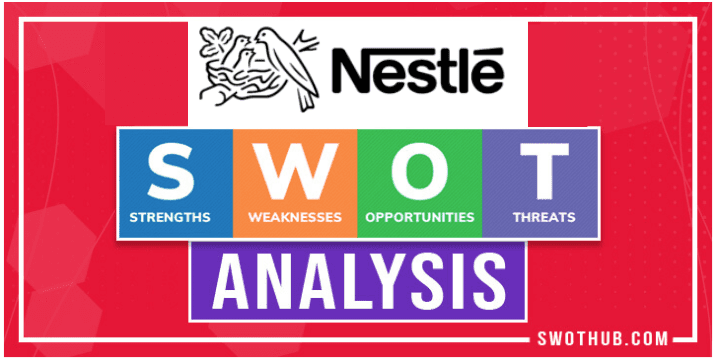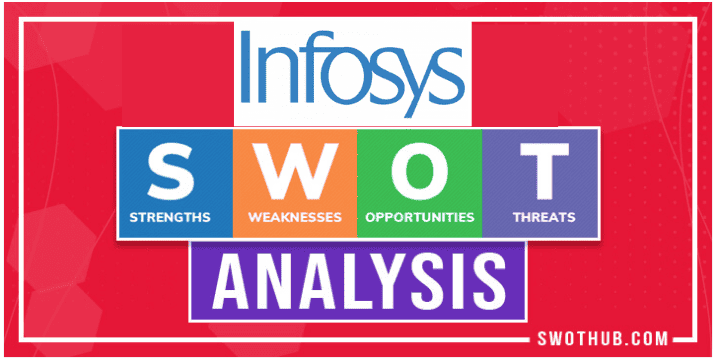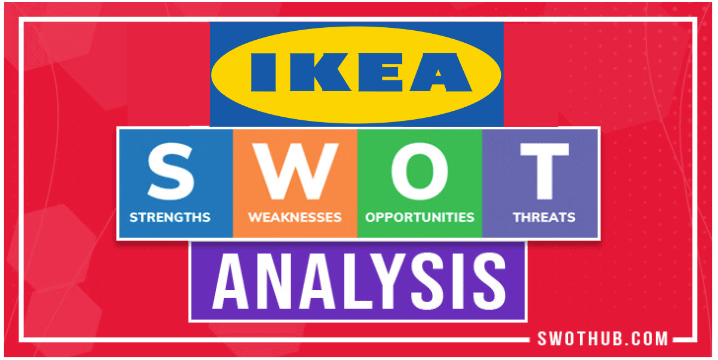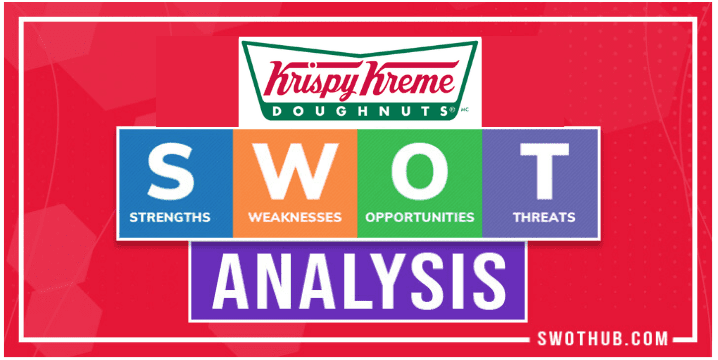The food industry has grown over the last twenty years thanks to big names such as Pepsico, KraftHeinz, and more. Nestle has outshined them all and a Nestle SWOT analysis will break down Nestle threats and weaknesses along with Nestle strengths and opportunities. See how this major player in the worldwide food market stacks up against Nestle competitors. Nestle is top food and beverage producer in the world, can they keep it up?
Table of Contents
Nestlé History and Nestle Competitors
Nestle is a Swiss multinational food and beverage company that was founded in 1866 by Henri Nestle. The company began as a producer of infant food, specifically a mixture of cow’s milk, wheat flour, and sugar that was easier for babies to digest than traditional breast milk substitutes. Nestle’s infant food quickly gained popularity and became a staple in many households.
Over time, the company expanded its product line to include other food and beverage items such as chocolate, coffee, and pet food. Today, Nestle is the largest food company in the world and operates in more than 190 countries. The company is known for its iconic brands such as KitKat, Nescafe, and Gerber, as well as its commitment to sustainability and social responsibility. Nestle’s success can be attributed to its focus on innovation, diversification, and strategic acquisitions that have allowed it to remain competitive in the ever-changing food industry.
Nestlé Company – At a Glance
| Name | Nestlé S.A. |
| Founded | 1866 |
| Industries Served | Packaged Food and Beverages |
| Geographic area served | Worldwide |
| Headquarters | Vevey, Vaud, Switzerland |
| Current CEO | Ulf Mark Schneider |
| Revenue (Swiss Franc) | $ 87.47 Billion |
| Profit (Swiss Franc) | $16.91 Billion |
| Employees | 339,000 |
Nestle Strengths in Being the Largest Food Company
Nestlé SWOT Analysis
The four pillars of a SWOT analysis are strengths, weaknesses, opportunities, and threats for your business. A SWOT analysis is a framework used to assess a company’s competitive situation and to create strategic planning. By taking Nestle’s strengths, and weaknesses of Nestle, threats of Nestle as well as opportunities of Nestle into account, we may better gain in-depth knowledge about Nestle’s company. In this article, we’ll be taking a look at the Nestle SWOT analysis framework to better understand its competitive position and potential for future growth. Continue reading to find out more about Nestle strengths, weaknesses, opportunities, and threats!
Nestlé SWOT Analysis Strengths
A company’s strengths are those aspects where it works better than average or in a way that sets it apart from its competitors. Nestle’s strengths are outlined in this section of the Nestle SWOT analysis article.
Huge Portfolio: The core brand, Nestle, has a brand value of more than $10 billion. They have a wide range of brands and more than 8000 product categories under their ownership. Pet care, instant beverages, healthcare, dairy products, kitchenware, candy, water, and many other items are all on their inventory of available goods.
Biggest food corporation: With sales of its Hot Pockets, Stouffer’s, DiGiorno, and Nespresso products, among others, Nestle has become one of the largest food companies in the world, with a market capitalization of more than $330 billion.
Global Presence: Nestle is a well-known brand worldwide in the processed food industry. More than 186 different nations have customers for them. The brand’s largest market is in America, and it has effectively expanded into other significant markets in Sub-Saharan Africa, the Middle East, Asia, and Europe.
Talented employees: Nestle has amassed a team of productive and talented employees over the years who contribute to the success of the business. They can continue doing business abroad because of their efficient supply chain.
Fast Innovation: By utilizing science across all platforms and collaborating with regional innovators, Nestle is able to innovate more quickly and in response to regional demands.
Nestlé SWOT Analysis Weaknesses
Weaknesses in a business are those that limit its potential, lower its level of viability, and prevent it from achieving its goals. In this section of the Nestle SWOT analysis, we’ll look at Nestle’s weaknesses.
Organizational Structure: Rather than being based on its geographical operations, Nestle’s current organizational structure is segmented based on its product portfolio. This prevents operations from being agile and creates a huge power distance when making decisions.
Recalls for tainted food: Despite taking strict measures to ensure the highest level of food quality, Nestlé has experienced instances of tainted food being sold. This hurts the company’s reputation, and the public has already expressed its anger.
Controversies: Nestle has frequently been the subject of media interest. Some of the instances that most damage its market image include the assertion that water will be privatized, inaccurate labeling, and a lawsuit alleging that child and slave labor was used to make chocolate.
Price increases: Nestle has raised the price of a particular category of their consumer products by 6.5 percent. The price increase is a result of rising transportation and raw material costs, supply chain issues, and an inflationary climate as a whole.
Analysis of Nestle’s Strengths and Weaknesses
Nestle’s strengths and weaknesses can be analyzed to determine the company’s position in the market. The company’s strengths, such as its global presence, diverse portfolio of products, innovation, and powerful brand reputation, give it a competitive edge. However, its weaknesses, such as its reliance on commodities for its raw materials, lack of diversification in terms of product categories, and lack of presence in emerging markets, may limit its growth potential.
To capitalize on its strengths and address its weaknesses, Nestle must focus on innovation and expanding its presence in emerging markets. The company should also focus on diversifying its product portfolio in order to respond to changing tastes and preferences.
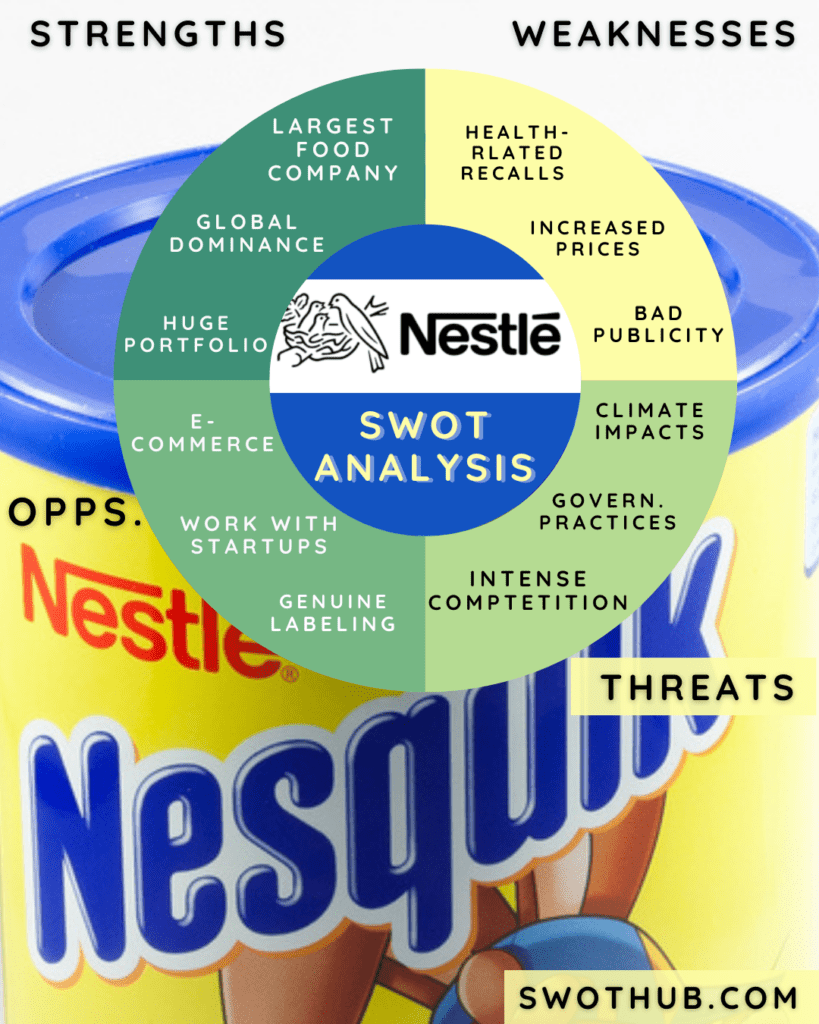
Opportunities for Nestlé in SWOT Analysis
The Nestle Company exists in a world that is rich with possibilities. Some of the Nestle opportunities will be examined in the following section of the Nestle SWOT analysis:
E-Commerce: Nestle has a fantastic chance to improve its online store and e-commerce websites. A very small number of CPGs provide web services to enhance and simplify the shopping experience. Although Nestle has online stores in a few countries, the business will benefit from expanding those services to more locales.
Genuine labeling: Nestle has already come under fire for providing false nutritional data on its packaging. As a result, there is room for improvement by providing reliable information and correctly labeling its products.
Lifestyle modifications: Nestle’s business has occasionally been negatively affected by social controversies, but its reputation for quality products still works in its favor. Their potential for growth is related to the global shift in lifestyle.
Startups option: Nestlé has a great chance to increase the number of small food businesses operating under its well-known brand name. For the purpose of promoting its brand, Nestlé can also work with fresh startups.
Threats for Nestle in SWOT Analysis
Threats endanger the stability and profitability of every business. Nestle’s threats that are crucial to consider will be covered in this article on the Nestle SWOT analysis.
Intense Competition: An increase in competition is being brought on by the rising demand for packed foods and drinks. Local and foreign businesses are entering the industry at an increasing rate. It increases the chance of losing customers.
Nestle Competitors Analysis
Nestle has a wide array of competitors, including Unilever, Kraft Heinz, Coca-Cola, PepsiCo, and Danone. Unilever is a major competitor in the food and beverage industry. It produces a wide range of products, including ice cream, tea, and food products. Kraft Heinz is another major competitor in the food and beverage industry. It produces a wide range of products, including condiments, sauces, and snacks. Coca-Cola and PepsiCo are major competitors in the beverage industry. They produce a wide range of products, including soda, energy drinks, and juices. Danone is a major competitor in the dairy industry. It produces a wide range of products, including yogurt, cheese, and milk.
In order to understand Nestle’s position in the market, it is important to analyze the strengths and weaknesses of its competitors. This will help to identify areas where Nestle can outperform its competitors.
Economic crises: Following the pandemic situation’s effect, the global economy is still improving. People’s purchasing behaviors can be impacted by situations like unemployment. They might move to essential but less costly products.
Taxation and governmental practices: Some nations have high tax rates. It might result in lower company profit margins. Government policies, trade laws, and labor regulations can all cause a rise in production costs, which can result in a low profit margin for the business.
Climate Impact: Numerous Nestle products’ raw materials are affected by changing climatic conditions and their subsequent effects. Climate change affects raw materials like dairy, wheat, and coffee.
Nestlé Recommendations
It is concluded that customers of the Nestle brand can be found all over the globe which is an exceptional success. They have used their market presence and resources to effectively enter a number of sizable markets. They are well-liked by admirers thanks to their wide-ranging portfolio. Nestle’s SWOT analysis suggests that in order to regulate product quality, organizational changes need to be made.
- Embrace innovation and adaptability: In a rapidly changing business landscape, Nestle should prioritize innovation and adapt to emerging trends. This could involve investing in research and development to create new products, exploring innovative production processes, or adopting cutting-edge technologies to improve efficiency.
- Focus on sustainability: Consumers and stakeholders increasingly value sustainability and ethical practices. Nestle should continue to prioritize sustainable sourcing of ingredients, reducing its environmental footprint, and promoting responsible business practices. Emphasizing sustainability initiatives can enhance the company’s brand reputation and attract environmentally conscious customers.
- Enhance product portfolio: Nestle should regularly assess its product portfolio to ensure it meets changing consumer preferences and demands. This could involve introducing healthier alternatives, expanding into new categories or segments, or acquiring or partnering with innovative start-ups to gain access to new product lines.
- Strengthen brand loyalty and consumer engagement: Nestle can improve its competitive position by strengthening brand loyalty and fostering meaningful connections with consumers. Engaging customers through social media, personalized marketing campaigns, and interactive experiences can help build brand affinity and drive repeat purchases.
- Leverage digital technologies: As the digital landscape evolves, Nestle should leverage technology to optimize operations and enhance customer experiences. This could include adopting data analytics to gain insights into consumer behavior, leveraging e-commerce platforms to reach a wider customer base, and utilizing automation and artificial intelligence to streamline processes.
FAQ’s for Nestle SWOT Analysis
What are Nestlé’s biggest strengths?
Nestlé’s biggest strengths lie in its vast portfolio of diverse products, strong global presence, extensive research and development capabilities, and a well-established reputation built over decades.
What is Nestlé’s key competitive advantage?
Nestlé’s key competitive advantage is its ability to innovate and adapt to changing consumer demands, allowing them to consistently develop and market products that resonate with diverse audiences worldwide.
What is Nestlé most famous for?
Nestlé is most famous for its wide range of food and beverage products, including well-known brands like Nescafé, KitKat, Maggi, Nestea, and Nestlé Toll House, among others.
Visit our other SWOT analyses for food brands including Coca-Cola here.

